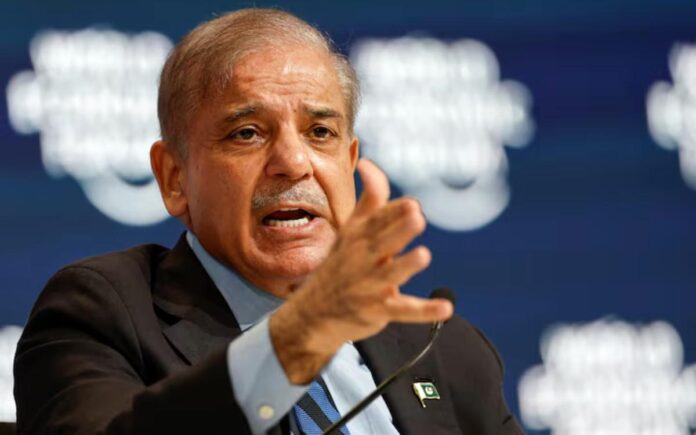Islamabad: Prime Minister Shehbaz Sharif emphasized on Tuesday that the International Monetary Fund’s (IMF) disbursement of $1.1 billion will significantly contribute to Pakistan’s economic stability, amid ongoing discussions for a new loan programme. This funding marks the second and final tranche of Pakistan’s $3 billion standby arrangement with the IMF, secured last summer to prevent a sovereign default. “The disbursement will bring more economic stability in Pakistan,” stated Sharif, highlighting the crucial role of the standby arrangement in averting default on the nation’s external liabilities.
The approval for the final tranche was granted by the IMF’s executive board on Monday. This decision follows discussions between Sharif and IMF Managing Director Kristalina Georgieva regarding a new loan programme, held on the sidelines of the World Economic Forum in Riyadh. The IMF acknowledged Pakistan’s policy and fiscal measures to meet the targets outlined in the standby arrangement. “Macroeconomic conditions have improved over the course of the program,” stated the IMF, anticipating a 2% growth in the current fiscal year ending on June 30, driven by continued recovery in the latter half of the fiscal period.
Furthermore, the IMF noted the strengthening fiscal position, with a primary surplus of 1.8 percent of GDP achieved in the first half of the fiscal year, on track to reach a primary surplus of 0.4% of GDP. Pakistan is pursuing a new, more substantial long-term Extended Fund Facility (EFF) agreement with the IMF. Finance Minister Muhammad Aurangzeb indicated that Islamabad could secure a staff-level agreement on the new programme by early July.
With aspirations for macroeconomic stability and the implementation of overdue structural reforms, Islamabad seeks a loan spanning at least three years. While details on the loan amount remain undisclosed, discussions between the Fund and the government are already underway, though a formal request is pending. If finalized, this would mark Pakistan’s 24th IMF bailout. The country’s $350 billion economy grapples with a persistent balance of payments crisis, facing nearly $24 billion in debt and interest repayments over the next fiscal year – three times more than its central bank’s foreign currency reserves.
The finance ministry anticipates a 2.6% growth in the economy for the fiscal year ending in June, with average inflation projected at 24%, a decline from the previous fiscal year’s 29.2%. The IMF highlighted a continuous decline in inflation, albeit still elevated, expecting it to reach around 20% by end-June with appropriately stringent, data-driven monetary policies maintained. To transition Pakistan from stabilization to a robust and sustainable recovery, the IMF stressed the imperative for continued policy and reform endeavors by the authorities.



